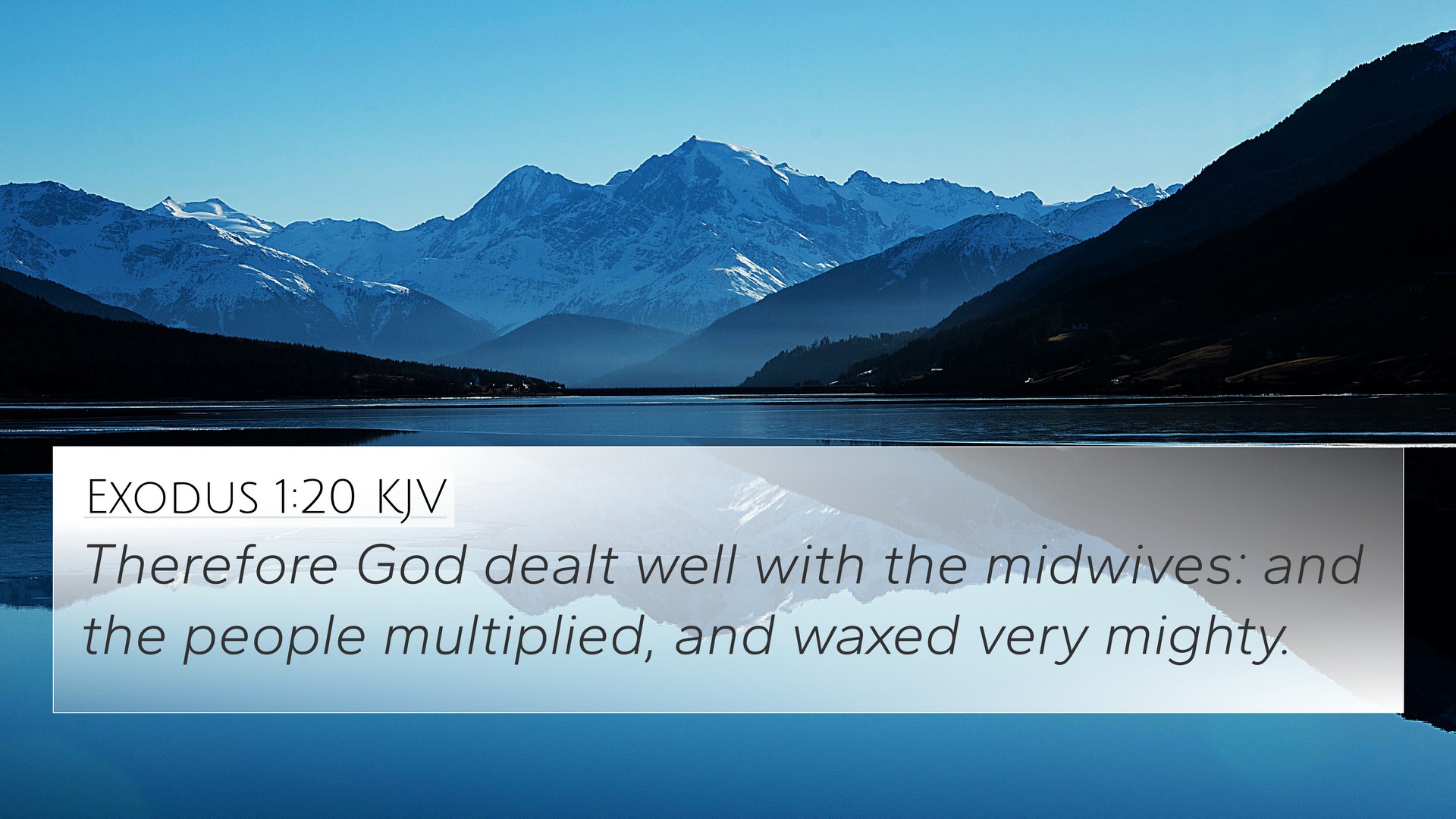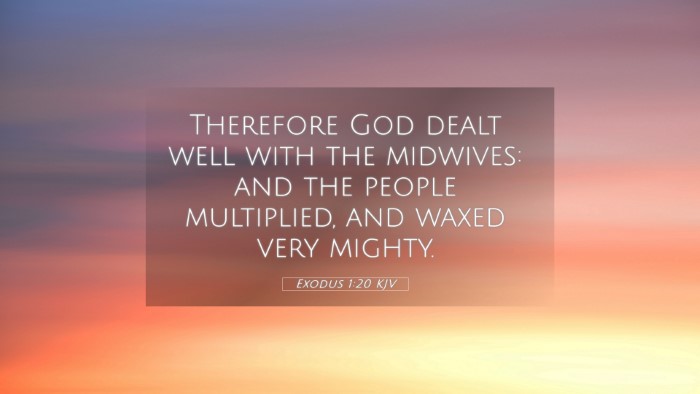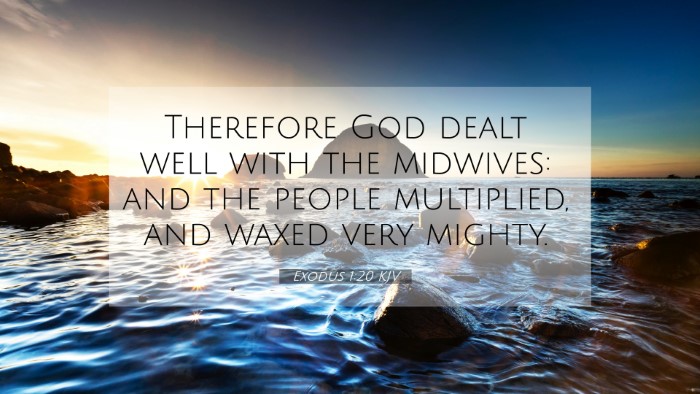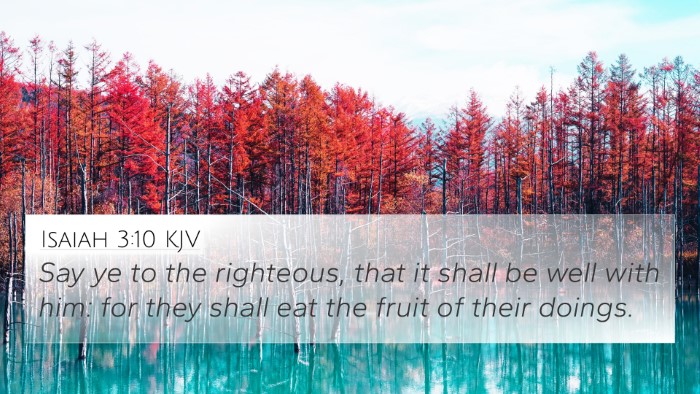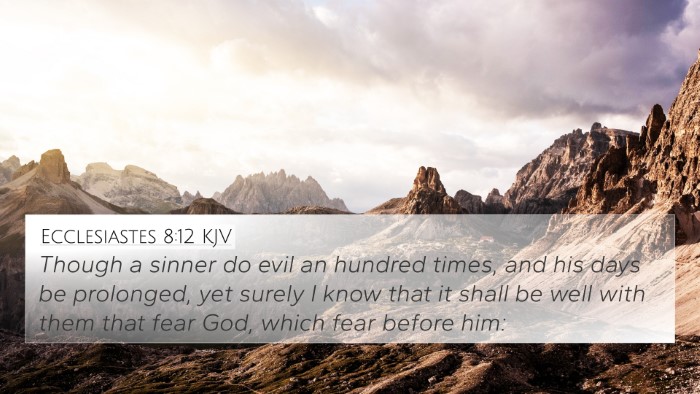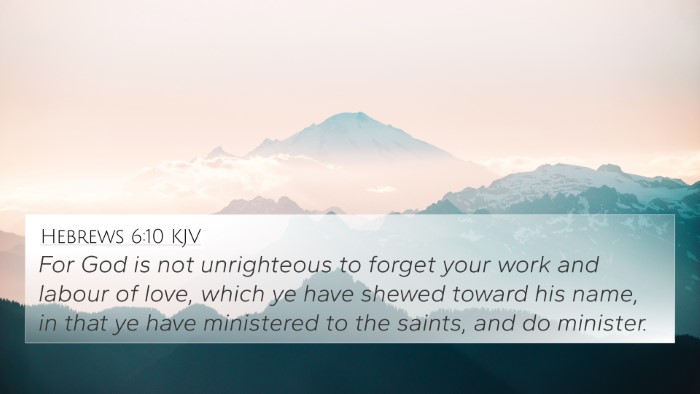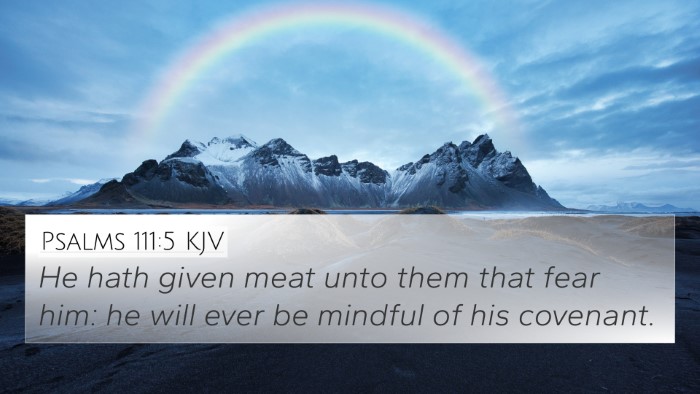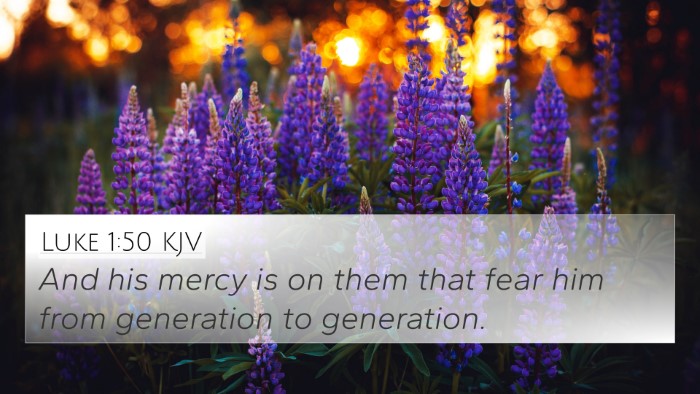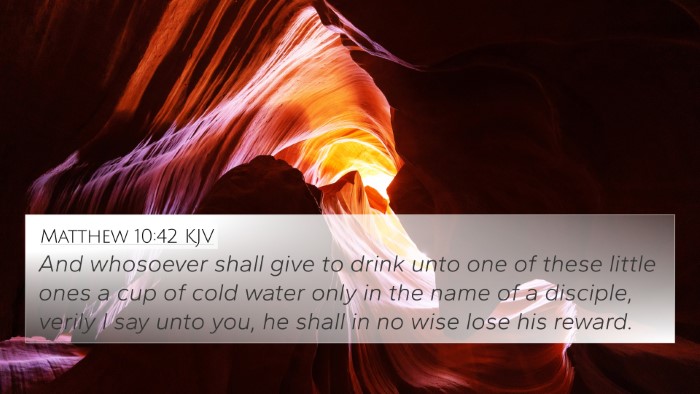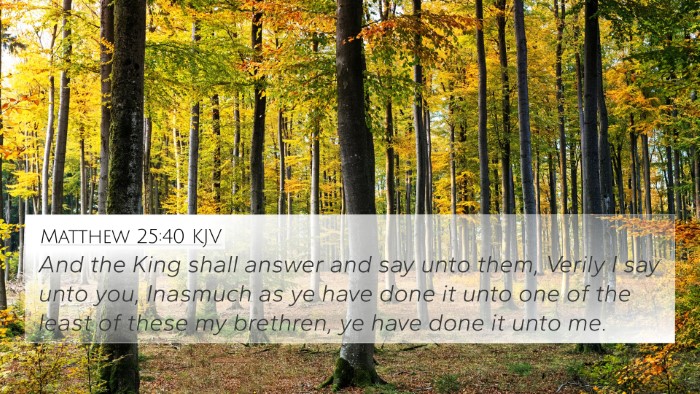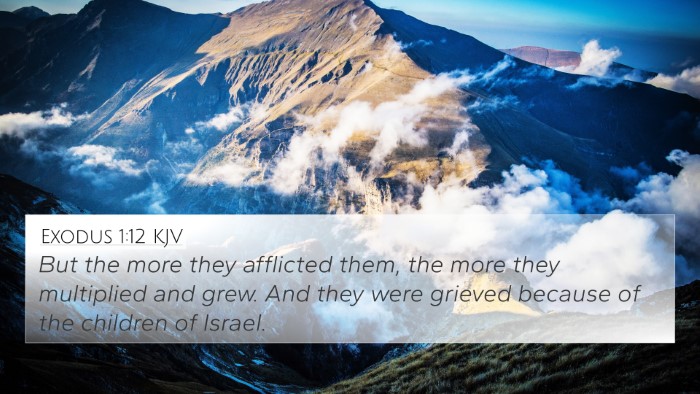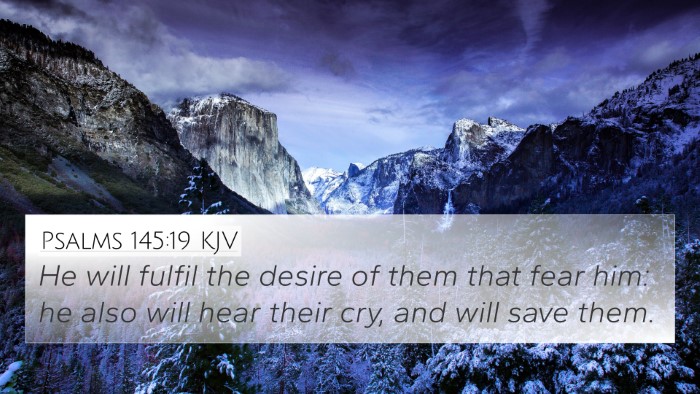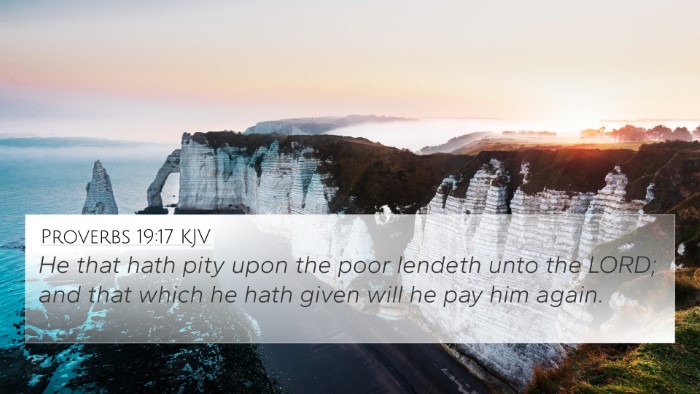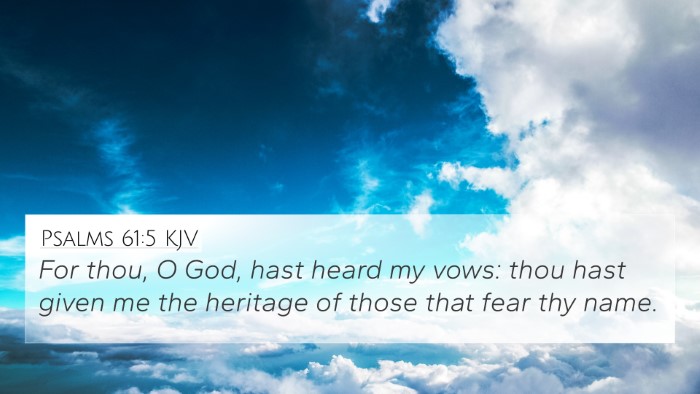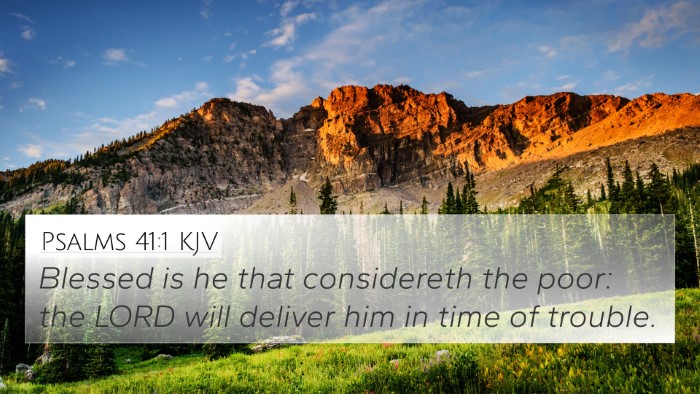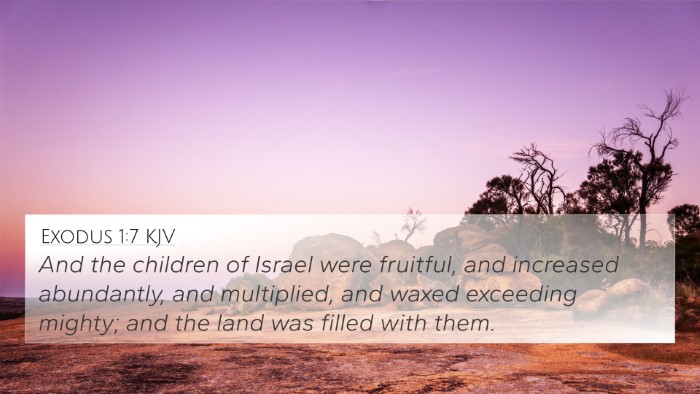Exodus 1:20 - Understanding the Verse
Verse Reference: Exodus 1:20 - "Therefore God dealt well with the midwives: and the people multiplied, and waxed very mighty."
This verse signifies a moment of divine favor in the context of oppression. The midwives' actions in defying Pharaoh's orders to kill Hebrew infants led to God's blessing on them and the continued growth of the Israelite population.
Commentary Insights
- Matthew Henry: Henry emphasizes the midwives' courage and moral integrity. Despite the risk, they chose to save lives over obeying unjust orders. This highlights a biblical principle: God honors those who act righteously in the face of evil.
- Albert Barnes: Barnes notes that the midwives' faith and disobedience brought God's favor. The term "dealt well" indicates God’s direct intervention in rewarding those who stand up for justice and righteousness. Their actions contributed to the burgeoning Israelite community, showcasing God's plan for His people.
- Adam Clarke: Clarke explains that God's blessing on the midwives aligns with the belief that those who protect life are aligned with God’s purposes. Their success in increasing the Hebrew population is seen as a direct counteract to Pharaoh’s oppressive measures.
Bible Verse Cross-References
- Acts 5:29 - "Then Peter and the other apostles answered and said: We ought to obey God rather than men." This verse parallels the midwives' choice to prioritize divine command over human authority.
- Hebrews 11:23 - "By faith Moses, when he was born, was hid three months of his parents, because they saw he was a proper child; and they were not afraid of the king's commandment." This highlights faith in life preservation against tyranny.
- Psalm 127:3 - "Lo, children are an heritage of the LORD: and the fruit of the womb is his reward." This indicates the value of children in God's eyes, supporting the actions of the midwives.
- Proverbs 21:15 - "It is joy to the just to do judgment: but destruction shall be to the workers of iniquity." This reinforces the midwives' moral choice as just and honorable.
- 1 Samuel 2:30 - "Wherefore the LORD God of Israel saith, I said indeed that thy house, and the house of thy father, should walk before me for ever: but now the LORD saith, Be it far from me; for them that honor me I will honor, and they that despise me shall be lightly esteemed." God's principle of honoring those who honor Him is reflected in Exodus 1:20.
- Matthew 10:31 - "Fear ye not therefore, ye are of more value than many sparrows." This reassures believers of their worth and God’s protective care in their acts of bravery.
- Genesis 12:2 - "And I will make of you a great nation, and I will bless you, and make your name great, so that you will be a blessing." This foreshadows God's promise to Abraham's descendants, partially realized through the midwives' actions.
Thematic Connections
The actions of the midwives can be viewed through a lens of biblical themes such as justice, courage, and divine reward for righteousness.
Connections with New Testament Teachings:
- Luke 1:68-75 - Zechariah's prophecy emphasizes God's faithfulness in delivering and remembering His people, which is a continuation of the narrative seen in Exodus.
- Romans 12:21 - "Be not overcome of evil, but overcome evil with good." This reflects the moral conviction of the midwives, promoting good over evil.
Conclusion
The narrative in Exodus 1:20 portrays a beautiful picture of divine providence as God rewards the midwives for their bravery and commitment to righteousness. This verse, therefore, not only reveals God's sovereignty but also the importance of standing firm in faith during adverse circumstances. Cross-referencing this verse provides a richer understanding of biblical values and the interconnections woven throughout Scripture.
For anyone interested in exploring the connections between Bible verses, this example serves as a model for comparative Bible verse analysis and highlights the significance of understanding Bible verse parallels across both Testaments.
